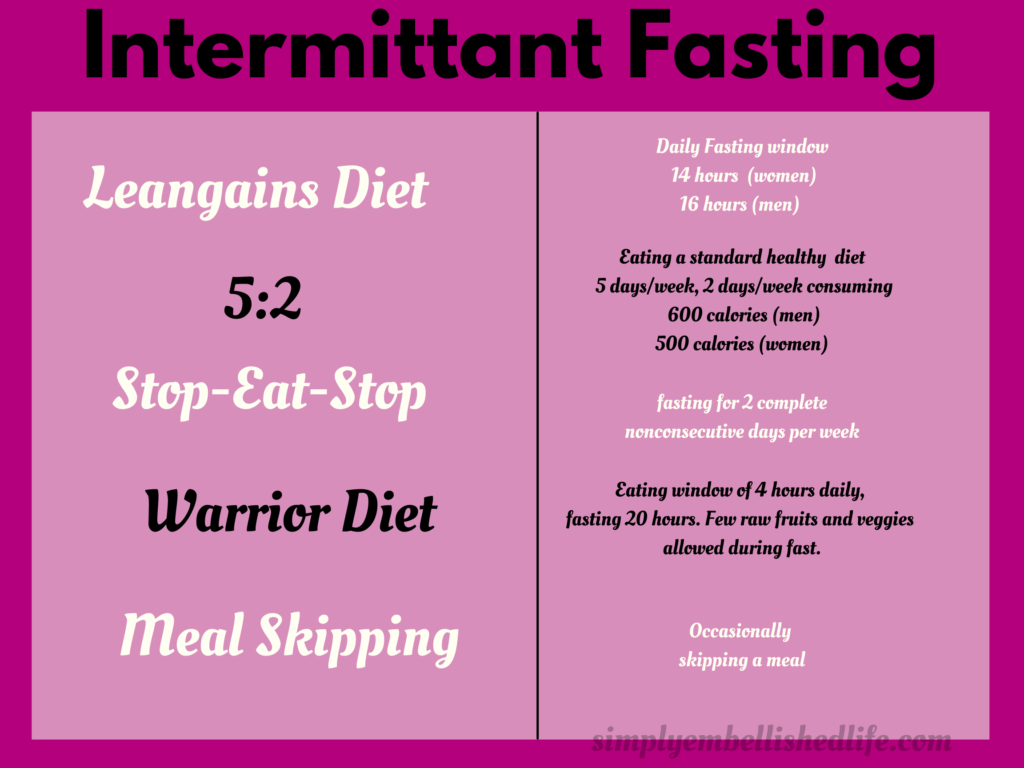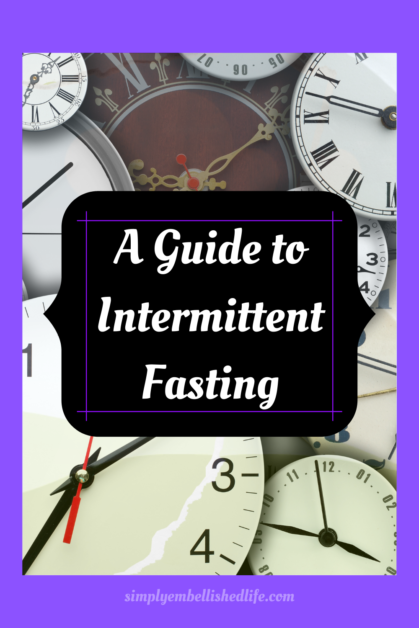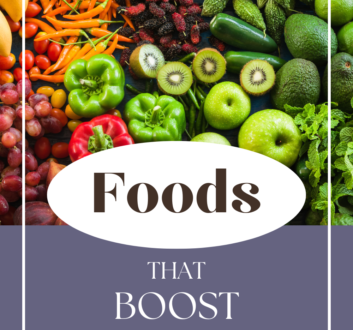You may have heard of intermittent fasting, but not know much about it. I had heard about it years ago, but didn’t really give it much thought or look into it until this past year. My husband was actually the person that inspired me to research it more after he started doing it. He started seeing results fairly quickly just by changing the timing of his eating.
It seemed that there must be something more than just calories in, versus calories burned going on. Our bodies are complex. I’m always fascinated by what little things can make such a huge difference in terms of our inner workings and our health. Everything is connected and therefore, something that affects one system of your body can also cause changes in another system.
What is Intermittent fasting?
The term, intermittent fasting, generally just means that you have predetermined windows of time that you can eat and windows of time that you don’t consume any, or in some cases very little, food. Intermittent fasting can be done in different ways depending on what works for you. The fasting windows can range anywhere from 10 hours to 24 hours for most people. There have been studies that observed participants fasting up to 30 days, but that would have to be monitored by a medical professional of course.
Some of the popular types of fasting include the Leangains diet, the 5:2 diet, Eat-Stop-Eat diet, meal skipping, and the Warrior diet. They all have different eating/fasting windows. It’s suggested that people that want to try fasting should start with a smaller fasting window to begin with. Below is a chart that has the timing for each fasting diet.

How to start
Since most people aren’t used to not eating for long periods of time, it would probably be easiest to start with the Leangains diet (fasting for 14-16 hours). A good portion of those hours will be spent sleeping anyways, so not eating during that time won’t be difficult. It really just depends on what you feel comfortable with and what you find works for you. During the fasting periods you can still drink water, tea, and black coffee without breaking the fast. I drink a cup of herbal tea every night before bed, which helps me not feel hungry at night.
You might want to even start out with 10-12 hour daily fasting at first to see how you do. I initially tried fasting for 12 hours/day. It wasn’t difficult at all, but I also didn’t notice any changes. The changes, for me, started when I changed to the 14:10 method. I ended up losing 5 pounds, that exercise and a healthy diet weren’t taking care of and overall feeling better (less joint pain and midafternoon fatigue). During the first week I felt hungry in the mornings, but after that my body adjusted and I very rarely feel much hunger during the fasting times. It helps to be consistent about it.
What can Intermittent fasting do for you?
Most people might try it as a way to lose weight, but that isn’t the only thing that it can do for you. Studies have shown that intermittent fasting may help improve metabolism, lower blood sugar, and reduce inflammation. Reducing inflammation in the body can help relieve and/or prevent several diseases/disorders that are associated with it.
Inflammation has been known to cause a wide range of health problems. These include:
- arthritis
- cancer
- asthma
- decrease in brain function
- Alzheimer’s
- MS
Research has also shown that intermittent fasting helps in clearing toxins and damaged cells from the body and increasing human growth hormone (HGH). The clearing of toxins and damaged cells may explain how it lowers risk of cancer and neurodegenerative diseases. Increases in HGH allows stored body fat to by more easily burned, therefore making it easier to lose excess body fat.
Will it work for you?
Obviously, fasting might not be right for everyone. If you have any chronic diseases, are taking medications, are pregnant or breast feeding you should definitely consult a physician beforehand. Also, when trying intermittent fasting make sure you’re still eating healthy meals during your eating window. Fasting doesn’t mean you can eat any and everything you feel like during your eating window. You still want to minimize refined sugars and grains and try not to eat right before you go to bed. Start with nutrient rich foods when breaking the fast. You also want to stay active. Exercise consistently to stay strong and healthy. Thin doesn’t always mean healthy.
Now that you know the benefits of intermittent fasting on overall health, not just weight loss, I hope you can see that it’s worth a try for many people wanting to live a healthier lifestyle. It may take some time to figure out the best way for you, but hopefully you can find one of the ways to be fairly simple to fit into your life. The best part is that it’s free. There’s no special program or supplements you have to purchase. It’s all about timing and eating healthy foods.
I’d love to hear your thoughts about and experiences with these methods of intermittent fasting! Has it changed your life for the better? Let me know.







3 Comments
Rachel Hedgepeth
I wake up sometimes as early as 2 in the morning. Would having unsweetened almond milk in my coffee break the fast?
Robynn
It really depends on how much you’re adding to your coffee. Usually adding just a small splash of unsweetened almond milk won’t break your fast. Just make sure you’re staying under 50 calories to stay in a fasted state.
Malaika Archer
I have done intermittent fasting in the past and had great results. I am working my way back to it. Great post.